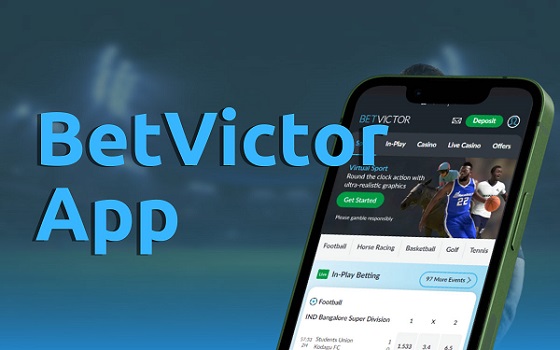Also Interesting
Top Reasons Why You Should Go to College in Canada

After 18 years of hard work, the time has finally come. You’re graduating from high school and headed to college. It’s one of the most exciting times in your life, so you want to make sure you choose the right school. No doubt the USA is known for its stellar learning institutions, but did you know that Canada is also home to excellent schools as well? Canada is often considered to be one of the best places to obtain a college degree. However, a quality education experience isn’t all that Canada can offer you.
Here are great reasons to go to college in Canada.
Affordable Tuition
Starting off with the financial aspect of things, many often opt to go to college out of state solely for cheaper tuition costs. Compared to the average price of college in the U.S., the costs are far lower in Canada. In some cases, the costs are cut in half and this applies to private schools as well. Granted, you’re still going to be financing for your education, so you’ll need a way to pay for it. There are plenty of ways to pay for a college education regardless of where you choose to study. If you’re looking for the quickest way to do it, then your best bet is to apply for a student loan.
Student loans provide students with the funding they need to pay for the tuition as well as any school supplies they need. However, this process is a little different from how it works in the U.S. You’ll apply for this loan at the Canada Student Loan Program (CSLP) or Canada Student Grants Program (GSGP). You can’t ask for a specific amount on the loan itself. How much you get will be a pre-determined amount that’s based on a few things. Some of these factors include your income or your family’s income and the cost of tuition. Make sure to research what else is going to be taken into account, so you can get a rough estimate.
Less Competition
You know how people often have to fight their way through competition to get accepted into some colleges? In Canada, you won’t have to worry about that issue. Canada is known for its amazing education system, and this is one of the most notable benefits. Not having a lot of competition, or any at all, makes it so easy for aspiring students to get the education they need, so they can excel in their life and career. In the U.S., getting into a certain college, like Harvard for example, isn’t exactly the easiest thing to accomplish. Some people have to rely on letters of recommendation from already established professionals or connection to even be considered. Canada seeks out pure academic performance.
Canadian Perks
Aside from living in a beautiful country, you’re also privy to Canadian amenities. Affordable healthcare, lower cost of living, and even low crime rates are to name a few. There are plenty of areas such as Vancouver, Toronto, Calgary, and Montreal you can live in. But as with any type of move, you want to research each area thoroughly before you can come to a decision.
Job Opportunities
Another key factor that Canada is well-known for is the amount of job opportunities students have. Students, in particular, actually have an advantage thanks to a post-graduate work permit (PGWP). This special permit is what lets students acquire the work experience they need in their career. It’s also what allows you to stay in the country, and work a full-time job at that, once you’ve verified you have a diploma, degree, or another form of certification. However, there are a few things you need to know first. For one thing, you can only apply for this permit once in their lifetime. You must first show proof of residence or you’ve left Canada. Then, you have to show that you’ve graduated from one of the designated learning institutions. You must also be registered as a full-time student, and have at least eight months that leads up to your degree. You’ll also need to receive your transcript from the aforementioned institutions that verifies you’ve met the requirements.
It’s possible to be considered ineligible for this permit as well. Here’s a list of what can make you ineligible for a post-graduate work permit in Canada:
Received the Global Affairs of Canada (GAC)
Received the permit before
Were a part of the Canada-China Scholar's Exchange Program
Got an Equal Opportunity Scholarship
Completed most of your credentials from distance learning
Completed a program that wasn't at one of the designated learning institutions in Canada
Even if you’ve managed to complete a program outside of the DLIs, you can still make yourself eligible by going to one. Sure, it will take time, but it’s more than worth the effort if you can procure a place in Canada.
Also Interesting
Cryptocurrency and Online Casinos and What’s Next for Bitcoin and Ethereum Payments: Overview From Specialists at Rabona Betting

Cryptocurrencies are becoming more common in everyday transactions. You can purchase things via digital currency on different sites and the system automatically exchanges it into the fiat currency like CAD.
This payment method is also popular at online casinos because of fast transactions, specifically, withdrawals. You can deposit money and place a bet on Napoli FC Rabona Canada, play various games, and then withdraw winnings the way you deposited funds. This article explores this interesting opportunity and what may come in the future.
Why Casinos Use Cryptocurrency
Online casinos like Rabona betting use cryptocurrency because it transfers funds faster than traditional payment systems. Bitcoin and Ethereum transactions don’t rely on banks, so transfers complete within minutes.
Players from countries with financial regulations use crypto wallets to send or receive funds without card rejections or blocked transfers. Casinos also cut costs since they don’t pay high processing fees to banks or card companies.
Crypto systems record each transaction on a blockchain ledger, so every move of money is visible and cannot be changed. That reduces disputes over withdrawals and deposits since each transaction’s info is available in public records.
Casinos that accept Bitcoin or Ethereum attract a wide range of players who prefer anonymity. Traditional payment systems require full identity checks, while crypto transfers use wallet addresses.
Players still need to pass KYC checks under legal standards, but crypto wallets give more privacy since they don’t require your bank data.
How Bitcoin and Ethereum Shape Casino Payments
Bitcoin is the top choice for online gamblers because most payment systems already integrate it easily. It allows deposits and withdrawals in similar amounts to bank transfers.
Sites like Rabona betting often provide it for high-volume transactions because cryptocurrency networks handle large sums safely and quickly. Digital currencies stands out because they allow smart contracts.
These contracts handle payouts automatically when a condition is met. For example, a casino game that uses an Ethereum contract can send a payout as soon as a winning combination appears, without manual approval.
Players deposit money and the casino automatically exchanges it to CAD. Thus, users can play bets in a currency they’re used to, and withdraw via the same crypto system that converts CAD to BTC, ETH, etc.
What’s Next for Bitcoin and Ethereum in Gambling
Future development aims to increase transaction speed and reduce fees. Bitcoin developers work on the Lightning Network, which processes microtransactions instantly through off-chain channels. That system suits online casinos since it handles many small bets quickly.
Ethereum’s developers improve scalability through updates that raise network capacity and lower gas costs. That’s one of the reasons why Ethereum switched from PoW to PoS.
Conclusion
Casinos like Rabona betting and others keep expanding payments to include more currencies like Solana, Cardano, Avalanche, or stablecoins like USDC, EURC, EURQ, and more. Most cryptocurrencies process transactions faster and provide some sort of anonymity, so players will continue using them at online casinos.
Also Interesting
Alberta takes a step towards iGaming legislation

Alberta is moving closer to joining the growing list of Canadian provinces embracing regulated online gambling. The province’s proposed Bill 48, known as the Alberta iGaming Act, has cleared its second reading in the Legislative Assembly, marking a significant milestone toward establishing a competitive, open iGaming market. For many observers, this signals that Alberta could soon follow in Ontario’s footsteps, paving the way for private operators to enter what’s currently a government-run landscape.
At the heart of the bill is the creation of the Alberta iGaming Corporation, an independent body that would oversee licensing, compliance, and responsible gaming initiatives. Its responsibilities would include setting technical standards, enforcing fair play through random number generator integrity checks, and ensuring operators meet anti-money laundering requirements. A board of seven directors, appointed by the Minister of Service Alberta and Red Tape Reduction, would guide the new regulator’s operations.
Support for the bill appears solid, with the United Conservative Party holding a majority in the legislature. The expectation is that once it passes through committee review and any amendments are finalized, the province will begin building the framework for its digital gaming market. Industry watchers are already predicting that the new system could roll out by mid-2026, with the first operators going live soon after.
The model Alberta is chasing looks a lot like Ontario’s, which launched its open iGaming market in 2022 and now records over a billion dollars in monthly wagers. Alberta’s approach aims to balance opportunity and oversight, letting gaming operators compete alongside the government’s Play Alberta platform. This move is expected to boost competition, variety, and consumer protection all at once, and could significantly contribute to the local economy. It just makes sense that any Canadian online casino targeting this North American market would welcome the news, as Alberta represents a massive untapped audience eager for safe and modern gaming options.
Consumer safeguards are a core part of Bill 48’s design. A centralized self-exclusion system would allow players to opt out of all licensed platforms through a single registration. There will also be mandatory age verification, betting limits, and spending alerts to promote responsible play. Revenues from the new market are expected to fund social programs and gambling treatment initiatives, ensuring that the benefits extend beyond the casino floor.
A big part of the motivation behind Bill 48 is to steer players away from unregulated offshore sites. Right now, thousands of Albertans gamble online through platforms that operate outside Canadian jurisdiction, offering little in the way of player protection or accountability. A legal, competitive market within Alberta would not only keep those dollars at home but also attract marketing investment and innovation from major operators.
If all goes as planned, Alberta’s iGaming Corporation could begin issuing licenses by next year, setting the stage for a 2026 launch. The province’s measured approach shows a clear preference for getting the framework right rather than rushing it through. For local players and the gaming industry alike, Alberta’s next chapter in digital entertainment is starting to take shape, and it looks like a winning hand.
-

 Frontier Centre for Public Policy2 days ago
Frontier Centre for Public Policy2 days agoRichmond Mayor Warns Property Owners That The Cowichan Case Puts Their Titles At Risk
-

 Business2 days ago
Business2 days agoSluggish homebuilding will have far-reaching effects on Canada’s economy
-

 Business2 days ago
Business2 days agoMark Carney Seeks to Replace Fiscal Watchdog with Loyal Lapdog
-

 COVID-191 day ago
COVID-191 day agoMajor new studies link COVID shots to kidney disease, respiratory problems
-

 Business2 days ago
Business2 days agoP.E.I. Moves to Open IRAC Files, Forcing Land Regulator to Publish Reports After The Bureau’s Investigation
-

 Energy2 days ago
Energy2 days agoCanada’s oilpatch shows strength amid global oil shakeup
-

 International1 day ago
International1 day agoBondi and Patel deliver explosive “Clinton Corruption Files” to Congress
-

 International1 day ago
International1 day agoIs America drifting toward civil war? Joe Rogan thinks so







